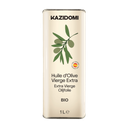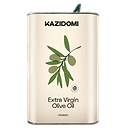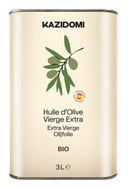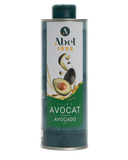Avocado oil and olive oil are two popular plant-based oils with health benefits, but their properties and uses differ. While both offer nutritional advantages, the choice depends on your specific goals, culinary preferences, and health needs.
Composition and health benefits
Avocado oil is particularly rich in monounsaturated fats, making it an excellent ally for heart health. It also contains vitamins, especially vitamin E, a powerful antioxidant that protects cells against free radicals. In addition, avocado oil is a good source of lutein, a carotenoid that supports eye health. These properties make it ideal for those looking to improve overall well-being.
Extra-virgin olive oil is equally beneficial, especially for its anti-inflammatory effects. Thanks to its oleic acid content, it supports cardiovascular health and is known to help reduce the risk of chronic diseases. It also contains polyphenols, antioxidants that slow down cellular aging and reduce inflammation in the body.
Taste and culinary uses
Avocado oil has a milder, more neutral flavor, making it versatile in a wide range of dishes without altering the natural taste of ingredients. It is perfect for dressings, sauces, or even smoothies. With its high smoke point, avocado oil is also excellent for high-temperature cooking, such as frying or grilling.
In contrast, olive oil—especially extra virgin—has a distinctive taste, sometimes slightly bitter or fruity, making it an excellent choice for dressings, marinades, or drizzling over dishes after cooking. However, its lower smoke point makes it less suitable for high-heat cooking. It is better used at medium heat or raw to preserve its benefits.
Benefits for skin and hair
Avocado oil is also an excellent skincare option, particularly for dry or sensitive skin. It penetrates quickly and provides deep hydration, making it ideal in nourishing creams or serums. It also benefits hair by adding shine and reducing breakage.
Olive oil, on the other hand, is known for its soothing and moisturizing effects. Often used in cosmetics, it nourishes and softens the skin while providing a repairing effect. It is also great for dry or damaged hair and to soothe skin irritations.
Environmental impact
The environmental impact of avocado oil production can be higher, due to strong demand for the fruit and the large amounts of water required for cultivation. In some regions, avocado farming is linked to unsustainable practices.
Olive oil, however, is generally produced more sustainably, although irrigation in certain areas can also raise ecological concerns. Organic olive oil producers favor eco-friendly methods, making it a more ethical option for those looking to reduce their environmental footprint. Additionally, olive production is more local and closer to home.
Conclusion: which oil to choose?
If you need an oil suitable for high-temperature cooking and rich in antioxidants and nutrients for eye health, avocado oil is an excellent choice. However, if you value anti-inflammatory properties, heart benefits, and a rich antioxidant content, extra-virgin olive oil is a must. Ideally, you can include both in your diet, as each offers unique benefits depending on your body’s needs and culinary preferences. Still, thanks to its precious antioxidants and local production, olive oil remains the oil to prioritize.








